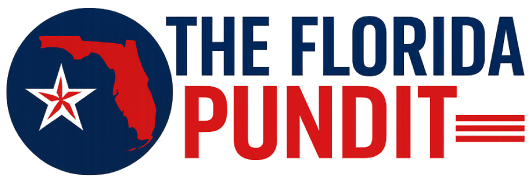In the final moments of his presidency, with just 15 minutes left in office, Joe Biden etched his name in history—not for the achievements his administration might have hoped to be remembered for, but for a controversial move that left many questioning his ethical compass. With poll numbers at historic lows and his presidency under intense scrutiny, Biden concluded his term with a series of pardons, notably extending them to several members of his own family.
These pardons, timed precisely to avoid media attention on his administration’s myriad ethical concerns, were not unexpected. For years, the press had been reluctant to fully confront the deepening scandal surrounding the Biden family’s financial entanglements, often deflecting or minimizing questions about their business dealings. But Biden’s preemptive pardons to relatives like James Biden, Sara Jones Biden, Valerie Biden Owens, John Owens, and Francis Biden thrust the issue into the spotlight once again.
For those who have followed the Biden family’s financial activities over the years, this move served as a sharp reminder of the accusations that have followed the family since Joe Biden entered the White House. Critics have long accused the Bidens of influence-peddling, with multiple family members receiving significant payments from foreign sources. The pattern of transactions involving Biden’s name and political connections raised serious questions about whether the President, despite his denials, had enabled these deals.
Biden’s early insistence that he had no knowledge of his son Hunter’s business dealings has been exposed as misleading at best. Over time, photos, emails, and testimony have painted a much clearer picture of the Bidens’ complicity in these dealings, showing that Joe Biden was well aware of his family’s efforts to capitalize on his political power. Despite this, the media largely downplayed these revelations, creating a shield around Biden that allowed him to navigate the accusations with little accountability.
Biden’s final days in office were marked by a rare moment of candor, or perhaps desperation. His public statements, particularly those about his handling of the Trump investigations, have been contradicted by new reports, including one from The Washington Post suggesting that Biden was frustrated by the failure to prosecute his predecessor before the election. Biden’s criticism of his Attorney General, Merrick Garland, and his regret over appointing him only deepened concerns about his leadership during this period.
Perhaps the most glaring of Biden’s last-minute decisions was his pardon of Hunter Biden, who faced multiple legal challenges over the years. Despite publicly vowing that he would never intervene in his son’s legal matters, Biden’s actions spoke louder than words. His explanation—that Hunter’s legal troubles stemmed from addiction, and that he had turned a corner—did little to reassure skeptics. The timing of the pardon only fueled suspicions that the Bidens had been preparing for this moment for years.
However, the pardon of Biden family members—none of whom had been charged with any crimes—was a more blatant act of protectionism. By extending clemency to his relatives, Biden shielded them from future prosecution for any alleged wrongdoings, including those related to the influence-peddling schemes that had been the subject of much speculation. The move was widely seen as a desperate attempt to ensure that no legal consequences would follow the family once Biden was out of office.
For years, Biden’s political career had been characterized by a certain fluidity in his ethical standards. Now, as his presidency came to an end, it appeared that he was seeking to settle scores and protect his legacy, even if it meant sacrificing whatever remained of his moral high ground. By pardoning his family, Biden was not only protecting them but himself, distancing his administration from the growing scandal that had, over time, come to define his tenure in office.
Yet, despite the pardons, the questions surrounding the Biden family’s activities remain unresolved. Figures like James Biden, who faced accusations of lying to Congress about his involvement in the influence-peddling operation, could still face legal repercussions. Even with the pardons, there is no guarantee that future investigations into these matters will be silenced.
Biden’s final act in office may have been one of self-preservation, but it also exposed the depths of the ethical compromises that characterized his administration. His legacy, already tainted by questions of integrity and transparency, was sealed by a decision that many view as an ultimate betrayal of the trust placed in him by the American people.
In the end, Joe Biden’s presidency will likely be remembered not for the high ideals he once espoused but for a series of ethical lapses that culminated in his final, controversial act of pardoning his family members. For a man who once called others “lying dog-faced pony soldiers,” Biden’s own role in Washington’s culture of corruption seems far more certain than any moral clarity.

